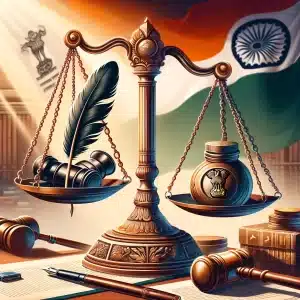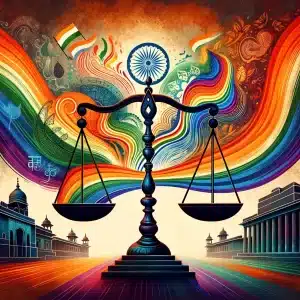Simplifying Your Life & Law | Legal Drafting services
WHAT IS VOYEURISM?
Voyeurism is a crime under IPC 1860, section-354C, it is the viewing or capturing the private acts of a woman or a girl, where she thinks that no one is watching her. This can include a female in a washroom, undressed in a changing room are going about her sexual acts. It is the intrusion in the personal space privacy of a person. Taking control over someone’s dignity and deciding whether to expose their body parts or intimate acts or not, is brutal behavior and is mentally disturbing for the victim. Sometimes it is done by placing a camera in the trial room and unwarranted observing and uploading nude pictures hot semi-nude pictures on the internet.
WHAT TO DO?
The victims of the cases such as voyeurism, sexual harassment, stalking, or rape can file an FIR and such a report is bounded to be recorded by a woman. The report may be in verbal or written form. Though a written copy has to be filed by the officer in charge. The sooner the FIR is filed the better it is considered. Information that is given in the report must be as detailed as possible. The person who is found guilty on the first conviction shall be punished with imprisonment of either description for a term of not less than one year but which may extend to three years and shall also be liable to pay a fine and the offense shall be bailable. The person who is found guilty on the second conviction order the subsequent conviction shall be punished with imprisonment of either description for a term of not less than 3 years and may extend to 7 years and shall also be liable to pay fine and the offense shall be nonbailable.
VOYEURISM UNDER INDIAN LAW.
Voyeurism under Indian law has been recognized as a crime just before few years. Until 2013 India did not recognize, only by the Indian Penal Code amendment act 2013 voyeurism has been recognized as a crime and give a separate provision for it with some penalties too. The Indian penal code is one of the oldest laws that prevail over some time, it recognized it as a crime later only. The response from society and many cases created the necessity to enact special provisions under the criminal law. Even now under Indian law where is considered to be a sexual offense and this provision for voyeurism was created under the Indian penal code to improve the safety of women and punish the offenders who are indirectly involved in sexual intercourse. And the main factor is to be noted that not only under IPC but also under the information technology act 2000 voyeurism is discussed indirectly. So, it is laid down that the person who is found guilty on the second conviction order the subsequent conviction shall be punished with imprisonment of either description for a term of not less than 3 years and may extend to 7 years and shall also be liable to pay fine and the offense shall be nonbailable.
Section 66(e) of the information technology act 2000 lays down the punishment in cases of violation of privacy. It says that, if a person capture, transmits, or publishes the images of the private parts of a person knowingly or unknowingly, with or without the consent, shall be punished with imprisonment which may extend 3 years and to find which may not exceed two lakh rupees or with both. This speaks about violation of privacy which is one of the elements of voyeurism as seen before. Studying the penal aspect of voyeurism, it is also necessary to know that even article 21 of the Indian constitution deals with the right to privacy and India is the only country to have the right to privacy as a fundamental right and ensures the right to privacy of each individual and it was recently appointed by the supreme court in the case of Justice K. S. Puttaswamy v Union of India. By the act of terrorism article 21 is violated. That means a person’s right to privacy is getting violated causing even mental disturbance. Amendment act of 2013 not only made changes in IPC but also added some provisions in the code of criminal procedure 1973 and evidence act 1872. Section 53a of the evidence act speaks about voyeurism as an offense but generally and not separately or exclusively about it. There is an amendment made and new laws formed regarding where is some effective or even more strict punishment can be made in the view of many and even that can be found out through many cases.
CASES RELATED TO VOYEURISM
Many cases are frequently reported on voyeurism which brings up a view that few changes are some effective laws can be enacted related to voyeurism. Many cases are being discussed for the past few years for voyeurism among the famous issue which was taken up by Smriti Irani where four men were arrested under section 354 c, 509, 2018 of IPC and under section 66e of IT act 2000 when Smriti Irani found pinhole camera which they told as CCTV camera in the dressing room which affected a person’s right privacy and resulted in voyeurism. Then in Tamil Nadu doctor, doctor L. Prakash’s issue stands for voyeurism indirectly. Dr. Prakash was an orthopedic surgeon, he is famously known as the sex doctor. He was arrested in December 2001 recording videos and photos of women engaging in dressing and also posted them online. In 2008 the sessions judge found that he is guilty and sentenced him to seven years rigorous imprisonment under IPC and information technology act 2000. Immoral traffic prevention act, indecent representation of women acts 1986, and the arms act 1959. All this was running concurrently and he was also fined up to rupees 11 lakh. While allowing the appeal petition partly, the division bench set at Prakash as already completed 13 years and three months of his imprisonment and they confirmed the judgment by the sessions court. But they modified the imprisonment one of the periods has already completed but fined him ab to rupees 119000 in 8 weeks. And held that once he pays off the fine, he would be released. And he set free too. The recent case Chintu Arvinder Singh v the state of Madhya Pradesh in the year 2016 held that the offender is punishable under section 354 c and 509 of IPC are bailable and for the offense under 66c and 67 of information and technology act with the maximum punishment of 3 years.
You may also like to read:
-
18 Jun 2021 Know Your LawDomestic violence in India
-
14 Jul 2021 Know Your LawDifferences between plea bargaining and compounding of offenses
-
08 Sep 2021 Know Your LawGrounds to defend on the cases of 498A
-
09 Aug 2021 Know Your LawLaw of Forgery under Indian Penal Code
-
26 Jul 2021 Know Your LawHomosexuality, Section 377 of IPC
-
10 Jul 2021 Know Your LawCulpable Homicide and Murder







